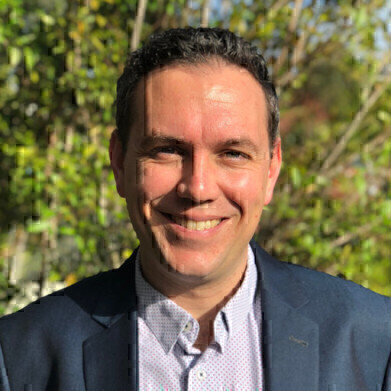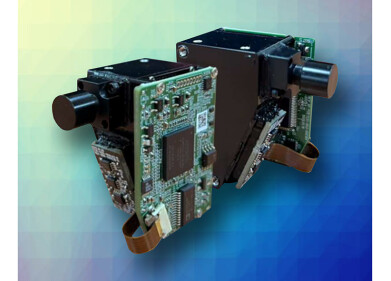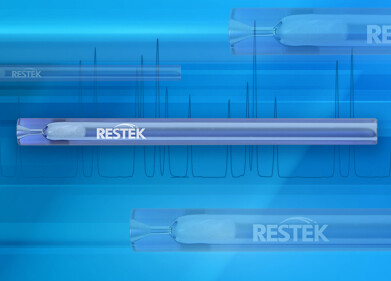Environmental Laboratory
Representing the Southern Hemisphere at ICMGP 2022: An Interview with Dr. Tom Cresswell
Jun 15 2022
Based in Sydney, Australia, Dr. Tom Cresswell is an isotope ecologist at the Australian Nuclear Science and Technology Organisation (ANSTO), studying the interaction between environmental pollution and living organisms using radioisotope tracers. At this year’s International Conference on Mercury as a Global Pollutant (ICMGP), which will be held virtually from 24th to 29th July and for which registration is now open, Dr. Cresswell will co-host a technical session to showcase research from the Southern hemisphere – an under-publicised portion of the global mercury community.
Recently, one of our reporters sat down with Tom to discuss his innovative approach to pollution monitoring and his eagerness to represent the Southern hemisphere at ICMGP 2022. If you'd like to view a video recording of this interview, click here.
First of all, I wonder if you could briefly discuss how long you’ve been involved in mercury monitoring?
I’ve been involved with mercury for the last two to three years. Our main focus at ANSTO is looking at providing some scientific solutions for decommissioning off-shore oil and gas infrastructure. A lot of this infrastructure on land, which is dealing with oil and gas, especially gas lines, will contain mercury that precipitates on the interior surfaces. The question is: it safe to leave some of these pipelines on the seabed after operations cease? So, when it comes to mercury understanding, to how mercury transforms over a long time in that subsea environment, interactions with sediment and then, subsequent interactions with marine animals is really key.
We can do that really nicely with radioactive mercury: we take enriched mercury-202 as an oxide, put it into our research reactor, get mercury-203 as a relatively short-lived gamma- and beta-emitting isotope, which we can then put in our different environments or compartments within the laboratory under controlled conditions. As a result, we can really accurately trace, down to the parts-per-billion level, where mercury goes and hopefully, how it transforms as well – you know, whether it methylates in the sediment, is taken up into different animals and transferred through a food chain – to really try to provide some answers as to whether it’s safe to leave some of these pipelines on the seabed.
Is that going to be part of the presentation that you’ll be giving at ICMGP 2022?
Certainly. In our special session on mercury in the Southern hemisphere, my colleague Dr. Francesca Gissi will be providing an overview of this research that we’re doing on sea-floor oil and gas decommissioning using mercury radio-tracers. We'd hoped to provide some data from some of our results, but because of COVID-19 we’ve had no way of being able to get to the labs. So, Francesca is going to be providing a nice overview of the experimental plan and the design that we’re hoping to undertake in the next couple of years.
I’m interested in the title of your special session, which is Mercury in the Southern hemisphere – perhaps the broadest subject-title I’ve ever heard! So, are you going to be some drilling down or are you going to cover a variety of topics?
Absolutely. We’ve got topics from colleagues all over the southern hemisphere looking into human health, atmospheric, terrestrial, marine – things like this us. So, a real broad overview of all of the work that’s going on in the southern hemisphere. And I think it’s really important because there’s certainly a bias towards work in mercury in the northern hemisphere, there tends to be a lot more research. This session aims to put a spotlight what it is we’re doing in the southern hemisphere, where there are similarities and complementarities with that of our colleagues in the northern hemisphere but also where there are differences, really try and help to elevate what it is that we’re doing and also bring in some new collaborations and start some new discussions going on across the hemisphere boundaries.
We’re talking today because of ICMGP 2022, the virtual conference that’s taking place from the 25th to the 29th of July. What are your views on whether would-be attendees should register now or leave it to the last minute?
Yes, certainly. I mean, registering for a conference like this, it’s what we as scientists, as policymakers, as researchers, as academics do – it’s our avenue to be able to get our research out there, to network and collaborate. So, I certainly encourage everyone to register for this great conference.
And the benefit of having this virtual platform is that the delegates will know beforehand, who’s attending, which gives you that great opportunity to network ahead of time. The other bonus is that because it’ll be virtual you won’t be missing anything; when you’re at an in-person conference, you might miss a session. With this virtual platform, all of the sessions will be available on-demand after the conference has happened, which gives you that great opportunity to really pick and choose the area of mercury research that interest you and then, to connect with other people. So, I certainly recommend that everyone jumps on and register now. Get it done early, don’t leave it to the last minute.
Digital Edition
IET 34.2 March 2024
April 2024
Gas Detection - Biogas batch fermentation system for laboratory use with automatic gas analysis in real time Water/Wastewater - Upcycling sensors for sustainable nature management - Prist...
View all digital editions
Events
Apr 22 2024 Hannover, Germany
Apr 22 2024 Marrakech, Morroco
Apr 23 2024 Kuala Lumpur, Malaysia
Apr 23 2024 Kintex, South Korea
Apr 23 2024 Edmonton, AB, Canada


















